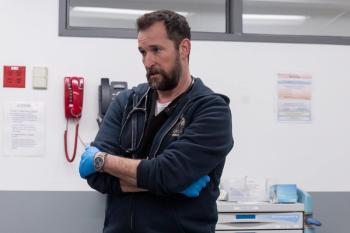
‘Resounding victory’: Supreme Court upholds mandate for free preventive care
The court preserved a provision in the Affordable Care Act that requires health plans to offer free screenings. Healthcare leaders welcome the ruling, but they warned of future challenges.
Healthcare leaders cheered the Supreme Court’s decision to uphold the Affordable Care Act’s requirement of insurers to provide free preventive services, such as cancer screenings.
The justices preserved those services in a 6-3
Michael Sapienza, CEO of the Colorectal Cancer Alliance, said the decision is “a resounding victory for the health of our nation.”
Healthcare leaders pointed out that free screenings help save lives, and they help the health system save money. But some warn that even with the ruling, there could be other challenges to free screenings in the future.
The case had challenged the authority of the U.S. Preventive Services Task Force, a panel which determines what preventive services should be covered under the Affordable Care Act. The plaintiffs opposed coverage for a drug preventing HIV, saying it clashed with their religious beliefs.
Millions of Americans could have lost access to free screenings if the court didn’t preserve the requirement for preventive services, healthcare groups said.
“Upholding the U.S. Preventive Services Task Force and no-cost preventive care means millions of Americans will continue to have access to screenings that save lives every single day,” Sapienza said in a statement.
'Interventions are essential'
Nancy Brown, CEO of the American Heart Association, said tens of millions of Americans have access to preventive services through well visits and prenatal care.
Millions more get blood pressure screenings and cholesterol checks.
“These interventions are essential to prevent heart attack, stroke, and other serious cardiovascular events,” Brown said in a statement. “Today’s decision recognizes that access to preventive care is critical for public health and helps everyone, everywhere live longer, healthier lives.”
“In this time, when access to benefits through Medicaid and the Affordable Care Act are proposed to be taken away from the Americans who rely on those programs, the Court’s decision affirms the importance of providing the medically necessary standard of care to all patients,” Mensik Kennedy said in a statement. “Preventive care saves money for our healthcare system and improves quality outcomes for patients — and it must be protected."
AHIP, the trade group representing health insurance companies, said health plans support the idea of providing access to screenings.
“Health plans have long supported affordable access to evidence-based preventive care to help people stay healthy – including coverage for recommended services with no cost sharing,” the group said in a statement. “With this ruling, there are no impacts to existing coverage, and we will closely monitor the ongoing legal process.”
'This is not over'
Some healthcare leaders said that they are concerned that Health & Human Services Secretary Robert F. Kennedy Jr. will ignore the task force’s recommendations on screenings, or move to replace the panel’s members.
Anne Shoup, senior adviser for Protect Our Care, welcomed the ruling but also expects other challenges.
“Make no mistake – this is not over,” Shoup said in a statement. “While today’s ruling protects preventive care for now, the Trump administration including HHS Secretary RFK Jr., Republicans, and other far-right extremists continue to try and weaken these protections and hand more power to insurance companies. The fight to protect affordable health care for all is far from over.”
Professor Lawrence Gostin, co-faculty director of the O’Neill Institute for National and Global Health Law, said Kennedy could reshape the task force that makes recommendations on coverage.
"With Robert F. Kennedy Jr. at the helm of HHS, he holds significant sway over the makeup of the USPSTF and the services that it recommends," Gostin said in a statement after the ruling. "His criticism surrounding perceived conflicts of interest among scientific advisory committee members and harmful messaging surrounding critical tools like vaccines have raised valid concerns about how he will exercise his authority."
David J. Skorton, MD, president and CEO of the Association of American Medical Colleges, said in a
“Preventive health care services, particularly those guaranteed at no cost under the Affordable Care Act, are essential for the early diagnosis and treatment of life-threatening illnesses for millions of Americans,” Skorton said. “This ruling protects access for more than 150 million Americans to critical preventive services, including cancer screenings, heart disease treatments, interventions for pregnancy complications, and screenings for anxiety and depression in children and adolescents.”
The ruling preserving preventive care follows other Supreme Court decisions this month that disappointed many healthcare leaders.
The court ruled this week that
Earlier this month,





























































































